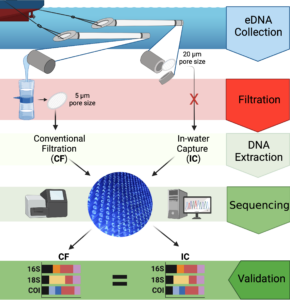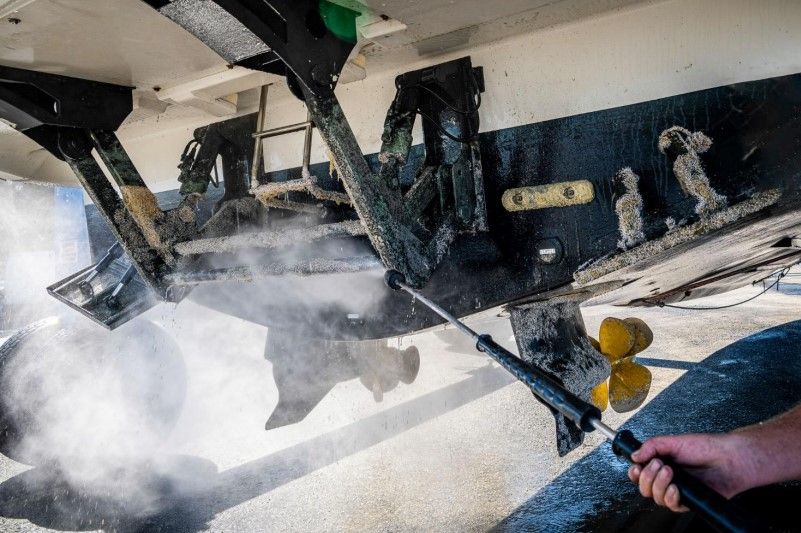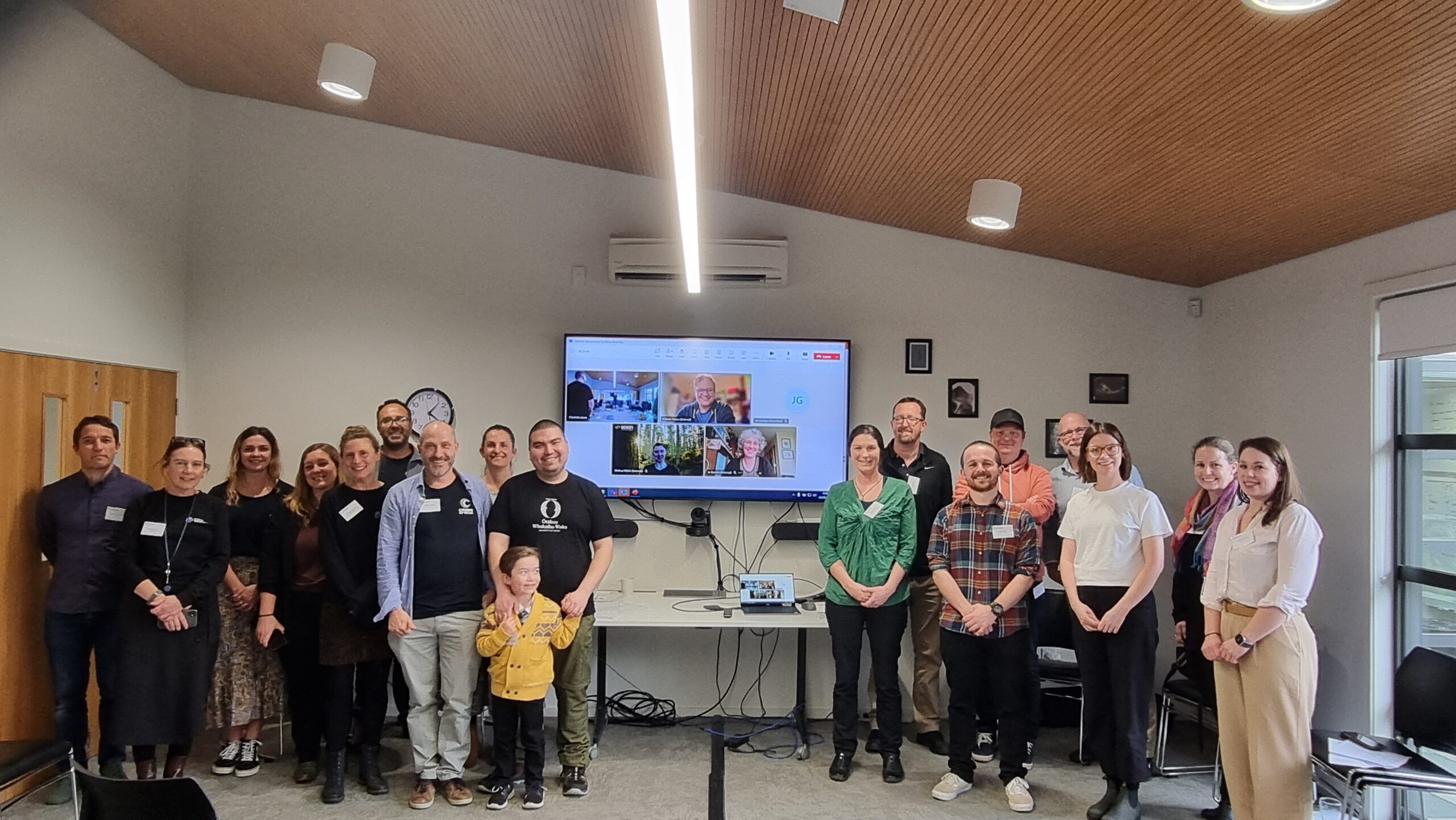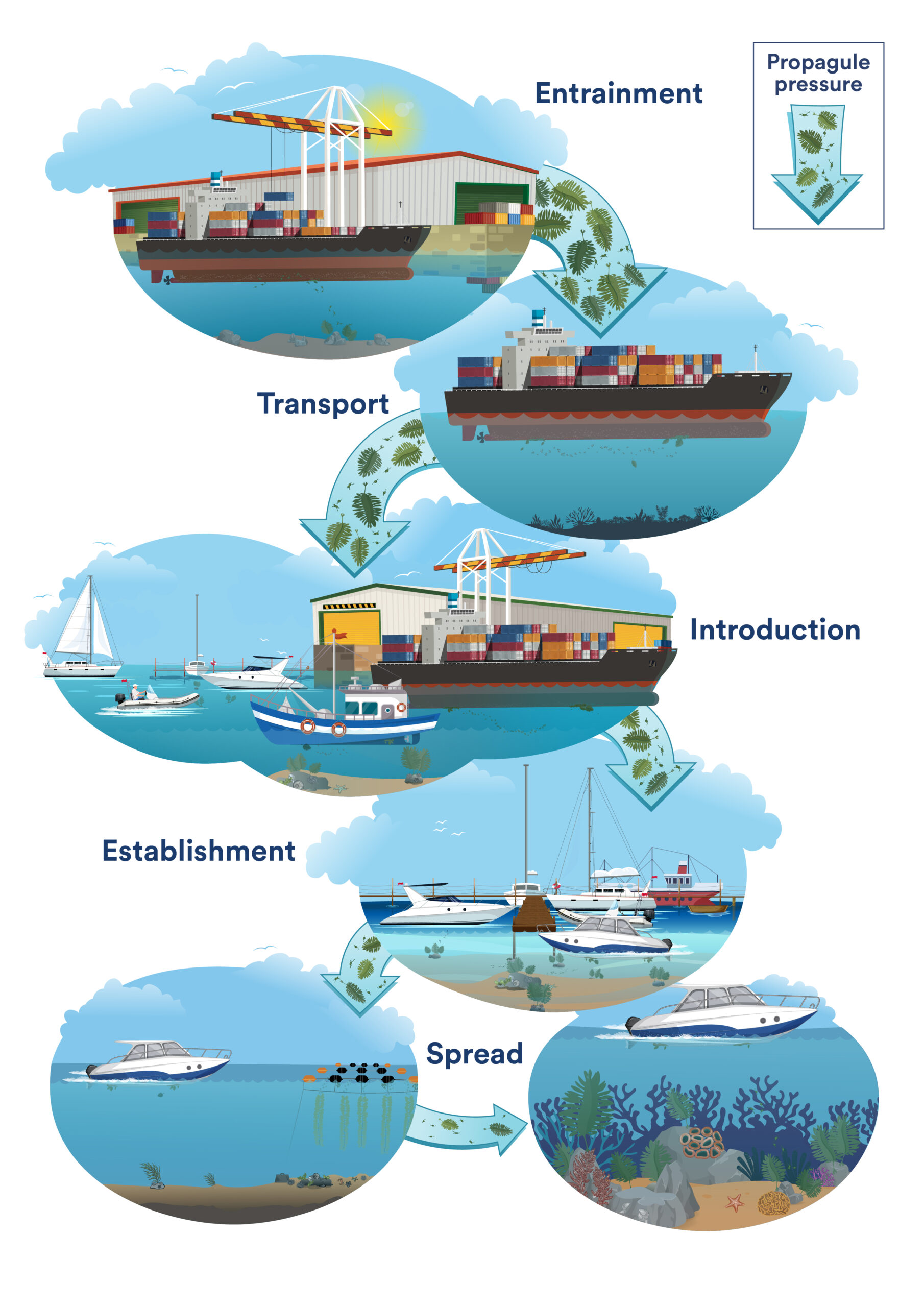Last year over 700 boat owners who have non-trailered boats moored in marinas around Aotearoa…
Filter no more: A modified plankton sampler for rapid in-water eDNA capture
In a groundbreaking study led by the Detect Team of the Marine Biosecurity Toolbox programme, a novel approach to characterizing biodiversity in aquatic ecosystems has been unveiled. The research focuses on optimizing the collection of environmental DNA (eDNA) using a cruising speed net (CSN) device and a modified cod-end with 20 μm nylon mesh inserts. Traditional methods, like plankton net tows, while cost-effective, often face challenges with clogging and contamination during filtration. The study addresses these issues by introducing a streamlined process that combines high-speed towing with innovative filtration, showcasing the potential to transform the efficiency and cost-effectiveness of eDNA isolation.
The study, conducted along New Zealand’s North-Eastern coastline, compared the CSN sampling protocol with conventional filtration methods. The modified cod-end exhibited promising potential for practical and cost-effective eDNA-derived biodiversity data collection, showcasing its adaptability to various vessel types and aquatic environments. The breakthrough method not only eliminates the cumbersome filtration step but also allows for rapid and extensive biodiversity screening, revolutionizing the capabilities for marine research on both bacterial and eukaryotic domains.

Experimental design from eDNA collection to validation. Complete specifications and assembly of the cruising speed net as well as detailed methodology of the conventional filtration is presented in von Ammon et al. (2020). Image created using Biorender.com.
This pioneering research not only marks a significant leap forward in marine biosecurity monitoring but also holds promise for global biodiversity assessments. The study’s findings, while presenting an innovative alternative, also acknowledge some limitations, emphasizing the need for further exploration and refinement. As we venture into a future of advanced marine research, this study lays the foundation for a paradigm shift, offering a glimpse into the potential of minimizing sample manipulation, reducing environmental impact, and opening avenues for citizen science participation in aquatic ecosystems.
The study was published January 2024 in the journal Methods in Ecology and Evolution, volume 15, 60-68. https://doi.org/10.1111/2041-210X.14258




Comments (0)